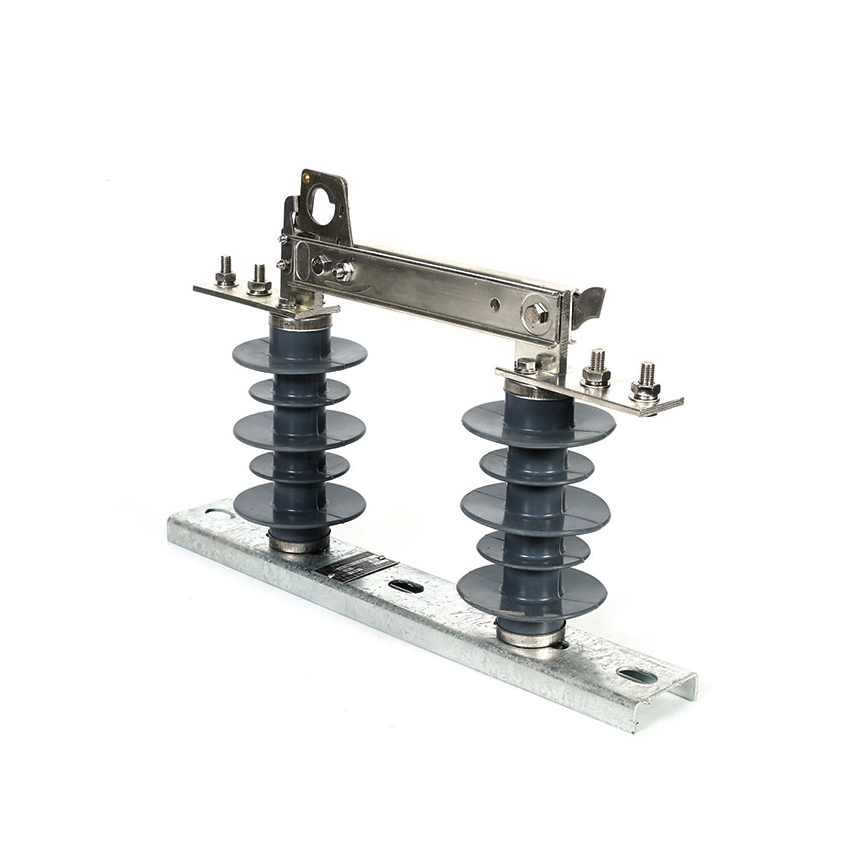Composite Insulators: Unveiling Their Significance in the Electrical Industry
Introduction:
Composite insulators play a critical role in the electrical industry, particularly in the domain of specialized electrical equipment. Understanding their features, applications, and benefits is essential for professionals in the field of electrical engineering. This article aims to provide you with valuable insights into composite insulators, shedding light on their importance and functionality.
1. What are Composite Insulators?
Composite insulators, also known as polymer insulators, are electrical devices designed to provide insulation and support in high-voltage applications. Unlike traditional ceramic or porcelain insulators, composite insulators are made from a combination of materials such as fiberglass rods, silicone rubber, and metal end fittings. The unique composition offers numerous advantages over their counterparts.
2. Features of Composite Insulators:
Composite insulators possess several key features that make them highly suitable for specialized electrical equipment. These features include excellent mechanical strength, resistance to environmental factors such as UV radiation and pollution, and high electrical insulation properties. Additionally, composite insulators are lightweight, providing ease of installation and maintenance.
3. Applications of Composite Insulators:
Composite insulators find wide-ranging applications in the electrical industry, particularly in power transmission and distribution systems. They are extensively used in overhead power lines, substations, and electrical equipment such as transformers and circuit breakers. The high insulation properties and durability of composite insulators make them ideal for harsh environmental conditions and areas prone to pollution.
4. Benefits of Composite Insulators:
The utilization of composite insulators offers several advantages to electrical professionals. Firstly, their lightweight nature makes transportation and installation more convenient, reducing associated costs. Secondly, composite insulators exhibit excellent resistance to electrical tracking and erosion, enhancing their lifespan and reliability. Furthermore, the superior mechanical strength of these insulators ensures long-term performance and minimizes the risk of failure.
Conclusion:
Composite insulators have revolutionized the electrical industry by providing a reliable and efficient solution for insulation and support in high-voltage applications. Their unique composition, features, and benefits make them a preferred choice for professionals in the field of electrical engineering. By understanding the significance of composite insulators, you can make informed decisions regarding their implementation in specialized electrical equipment, ensuring enhanced efficiency and reliability in power transmission and distribution systems.
Introduction:
Composite insulators play a critical role in the electrical industry, particularly in the domain of specialized electrical equipment. Understanding their features, applications, and benefits is essential for professionals in the field of electrical engineering. This article aims to provide you with valuable insights into composite insulators, shedding light on their importance and functionality.
1. What are Composite Insulators?
Composite insulators, also known as polymer insulators, are electrical devices designed to provide insulation and support in high-voltage applications. Unlike traditional ceramic or porcelain insulators, composite insulators are made from a combination of materials such as fiberglass rods, silicone rubber, and metal end fittings. The unique composition offers numerous advantages over their counterparts.
2. Features of Composite Insulators:
Composite insulators possess several key features that make them highly suitable for specialized electrical equipment. These features include excellent mechanical strength, resistance to environmental factors such as UV radiation and pollution, and high electrical insulation properties. Additionally, composite insulators are lightweight, providing ease of installation and maintenance.
3. Applications of Composite Insulators:
Composite insulators find wide-ranging applications in the electrical industry, particularly in power transmission and distribution systems. They are extensively used in overhead power lines, substations, and electrical equipment such as transformers and circuit breakers. The high insulation properties and durability of composite insulators make them ideal for harsh environmental conditions and areas prone to pollution.
4. Benefits of Composite Insulators:
The utilization of composite insulators offers several advantages to electrical professionals. Firstly, their lightweight nature makes transportation and installation more convenient, reducing associated costs. Secondly, composite insulators exhibit excellent resistance to electrical tracking and erosion, enhancing their lifespan and reliability. Furthermore, the superior mechanical strength of these insulators ensures long-term performance and minimizes the risk of failure.
Conclusion:
Composite insulators have revolutionized the electrical industry by providing a reliable and efficient solution for insulation and support in high-voltage applications. Their unique composition, features, and benefits make them a preferred choice for professionals in the field of electrical engineering. By understanding the significance of composite insulators, you can make informed decisions regarding their implementation in specialized electrical equipment, ensuring enhanced efficiency and reliability in power transmission and distribution systems.









